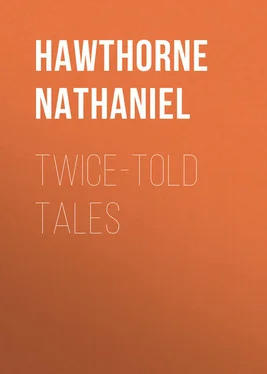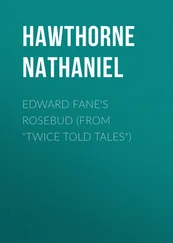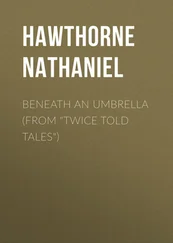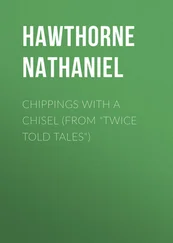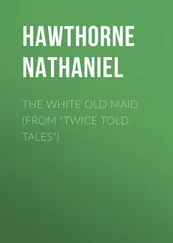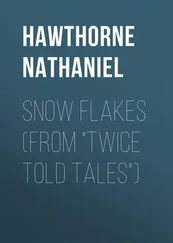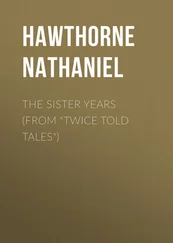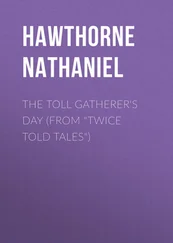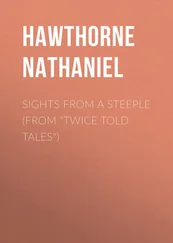Nathaniel Hawthorne - Twice-Told Tales
Здесь есть возможность читать онлайн «Nathaniel Hawthorne - Twice-Told Tales» — ознакомительный отрывок электронной книги совершенно бесплатно, а после прочтения отрывка купить полную версию. В некоторых случаях можно слушать аудио, скачать через торрент в формате fb2 и присутствует краткое содержание. Жанр: literature_19, foreign_antique, foreign_prose, на английском языке. Описание произведения, (предисловие) а так же отзывы посетителей доступны на портале библиотеки ЛибКат.
- Название:Twice-Told Tales
- Автор:
- Жанр:
- Год:неизвестен
- ISBN:нет данных
- Рейтинг книги:5 / 5. Голосов: 1
-
Избранное:Добавить в избранное
- Отзывы:
-
Ваша оценка:
- 100
- 1
- 2
- 3
- 4
- 5
Twice-Told Tales: краткое содержание, описание и аннотация
Предлагаем к чтению аннотацию, описание, краткое содержание или предисловие (зависит от того, что написал сам автор книги «Twice-Told Tales»). Если вы не нашли необходимую информацию о книге — напишите в комментариях, мы постараемся отыскать её.
Twice-Told Tales — читать онлайн ознакомительный отрывок
Ниже представлен текст книги, разбитый по страницам. Система сохранения места последней прочитанной страницы, позволяет с удобством читать онлайн бесплатно книгу «Twice-Told Tales», без необходимости каждый раз заново искать на чём Вы остановились. Поставьте закладку, и сможете в любой момент перейти на страницу, на которой закончили чтение.
Интервал:
Закладка:
In this manner Mr. Hooper spent a long life, irreproachable in outward act, yet shrouded in dismal suspicions; kind and loving, though unloved, and dimly feared; a man apart from men, shunned in their health and joy, but ever summoned to their aid in mortal anguish. As years wore on, shedding their snows above his sable veil, he acquired a name throughout the New England churches, and they called him Father Hooper. Nearly all his parishioners, who were of mature age when he was settled, had been borne away by many a funeral: he had one congregation in the church, and a more crowded one in the churchyard; and having wrought so late into the evening, and done his work so well, it was now good Father Hooper's turn to rest.
Several persons were visible by the shaded candlelight, in the death chamber of the old clergyman. Natural connections he had none. But there was the decorously grave, though unmoved physician, seeking only to mitigate the last pangs of the patient whom he could not save. There were the deacons, and other eminently pious members of his church. There, also, was the Reverend Mr. Clark, of Westbury, a young and zealous divine, who had ridden in haste to pray by the bedside of the expiring minister. There was the nurse, no hired handmaiden of death, but one whose calm affection had endured thus long in secrecy, in solitude, amid the chill of age, and would not perish, even at the dying hour. Who, but Elizabeth! And there lay the hoary head of good Father Hooper upon the death pillow, with the black veil still swathed about his brow, and reaching down over his face, so that each more difficult gasp of his faint breath caused it to stir. All through life that piece of crape had hung between him and the world: it had separated him from cheerful brotherhood and woman's love, and kept him in that saddest of all prisons, his own heart; and still it lay upon his face, as if to deepen the gloom of his darksome chamber, and shade him from the sunshine of eternity.
For some time previous, his mind had been confused, wavering doubtfully between the past and the present, and hovering forward, as it were, at intervals, into the indistinctness of the world to come. There had been feverish turns, which tossed him from side to side, and wore away what little strength he had. But in his most convulsive struggles, and in the wildest vagaries of his intellect, when no other thought retained its sober influence, he still showed an awful solicitude lest the black veil should slip aside. Even if his bewildered soul could have forgotten, there was a faithful woman at this pillow, who, with averted eyes, would have covered that aged face, which she had last beheld in the comeliness of manhood. At length the death-stricken old man lay quietly in the torpor of mental and bodily exhaustion, with an imperceptible pulse, and breath that grew fainter and fainter, except when a long, deep, and irregular inspiration seemed to prelude the flight of his spirit.
The minister of Westbury approached the bedside.
"Venerable Father Hooper," said he, "the moment of your release is at hand. Are you ready for the lifting of the veil that shuts in time from eternity?"
Father Hooper at first replied merely by a feeble motion of his head; then, apprehensive, perhaps, that his meaning might be doubted, he exerted himself to speak.
"Yea," said he, in faint accents, "my soul hath a patient weariness until that veil be lifted."
"And is it fitting," resumed the Reverend Mr. Clark, "that a man so given to prayer, of such a blameless example, holy in deed and thought, so far as mortal judgment may pronounce; is it fitting that a father in the church should leave a shadow on his memory, that may seem to blacken a life so pure? I pray you, my venerable brother, let not this thing be! Suffer us to be gladdened by your triumphant aspect as you go to your reward. Before the veil of eternity be lifted, let me cast aside this black veil from your face!"
And thus speaking, the Reverend Mr. Clark bent forward to reveal the mystery of so many years. But, exerting a sudden energy, that made all the beholders stand aghast, Father Hooper snatched both his hands from beneath the bedclothes, and pressed them strongly on the black veil, resolute to struggle, if the minister of Westbury would contend with a dying man.
"Never!" cried the veiled clergyman. "On earth, never!"
"Dark old man!" exclaimed the affrighted minister, "with what horrible crime upon your soul are you now passing to the judgment?"
Father Hooper's breath heaved; it rattled in his throat; but, with a mighty effort, grasping forward with his hands, he caught hold of life, and held it back till he should speak. He even raised himself in bed; and there he sat, shivering with the arms of death around him, while the black veil hung down, awful, at that last moment, in the gathered terrors of a lifetime. And yet the faint, sad smile, so often there, now seemed to glimmer from its obscurity, and linger on Father Hooper's lips.
"Why do you tremble at me alone?" cried he, turning his veiled face round the circle of pale spectators. "Tremble also at each other! Have men avoided me, and women shown no pity, and children screamed and fled, only for my black veil? What, but the mystery which it obscurely typifies, has made this piece of crape so awful? When the friend shows his inmost heart to his friend; the lover to his best beloved; when man does not vainly shrink from the eye of his Creator, loathsomely treasuring up the secret of his sin; then deem me a monster, for the symbol beneath which I have lived, and die! I look around me, and, lo! on every visage a Black Veil!"
While his auditors shrank from one another, in mutual affright, Father Hooper fell back upon his pillow, a veiled corpse, with a faint smile lingering on the lips. Still veiled, they laid him in his coffin, and a veiled corpse they bore him to the grave. The grass of many years has sprung up and withered on that grave, the burial stone is moss-grown, and good Mr. Hooper's face is dust; but awful is still the thought that it mouldered beneath the Black Veil!
THE MAYPOLE OF MERRY MOUNT
There is an admirable foundation for a philosophic romance in the curious history of the early settlement of Mount Wollaston, or Merry Mount. In the slight sketch here attempted, the facts, recorded on the grave pages of our New England annalists, have wrought themselves, almost spontaneously, into a sort of allegory. The masques, mummeries, and festive customs, described in the text, are in accordance with the manners of the age. Authority on these points may be found in Strutt's Book of English Sports and Pastimes.
Bright were the days at Merry Mount, when the Maypole was the banner staff of that gay colony! They who reared it, should their banner be triumphant, were to pour sunshine over New England's rugged hills, and scatter flower seeds throughout the soil. Jollity and gloom were contending for an empire. Midsummer eve had come, bringing deep verdure to the forest, and roses in her lap, of a more vivid hue than the tender buds of Spring. But May, or her mirthful spirit, dwelt all the year round at Merry Mount, sporting with the Summer months, and revelling with Autumn, and basking in the glow of Winter's fireside. Through a world of toil and care she flitted with a dreamlike smile, and came hither to find a home among the lightsome hearts of Merry Mount.
Never had the Maypole been so gayly decked as at sunset on midsummer eve. This venerated emblem was a pine-tree, which had preserved the slender grace of youth, while it equalled the loftiest height of the old wood monarchs. From its top streamed a silken banner, colored like the rainbow. Down nearly to the ground the pole was dressed with birchen boughs, and others of the liveliest green, and some with silvery leaves, fastened by ribbons that fluttered in fantastic knots of twenty different colors, but no sad ones. Garden flowers, and blossoms of the wilderness, laughed gladly forth amid the verdure, so fresh and dewy that they must have grown by magic on that happy pine-tree. Where this green and flowery splendor terminated, the shaft of the Maypole was stained with the seven brilliant hues of the banner at its top. On the lowest green bough hung an abundant wreath of roses, some that had been gathered in the sunniest spots of the forest, and others, of still richer blush, which the colonists had reared from English seed. O, people of the Golden Age, the chief of your husbandry was to raise flowers!
Читать дальшеИнтервал:
Закладка:
Похожие книги на «Twice-Told Tales»
Представляем Вашему вниманию похожие книги на «Twice-Told Tales» списком для выбора. Мы отобрали схожую по названию и смыслу литературу в надежде предоставить читателям больше вариантов отыскать новые, интересные, ещё непрочитанные произведения.
Обсуждение, отзывы о книге «Twice-Told Tales» и просто собственные мнения читателей. Оставьте ваши комментарии, напишите, что Вы думаете о произведении, его смысле или главных героях. Укажите что конкретно понравилось, а что нет, и почему Вы так считаете.
